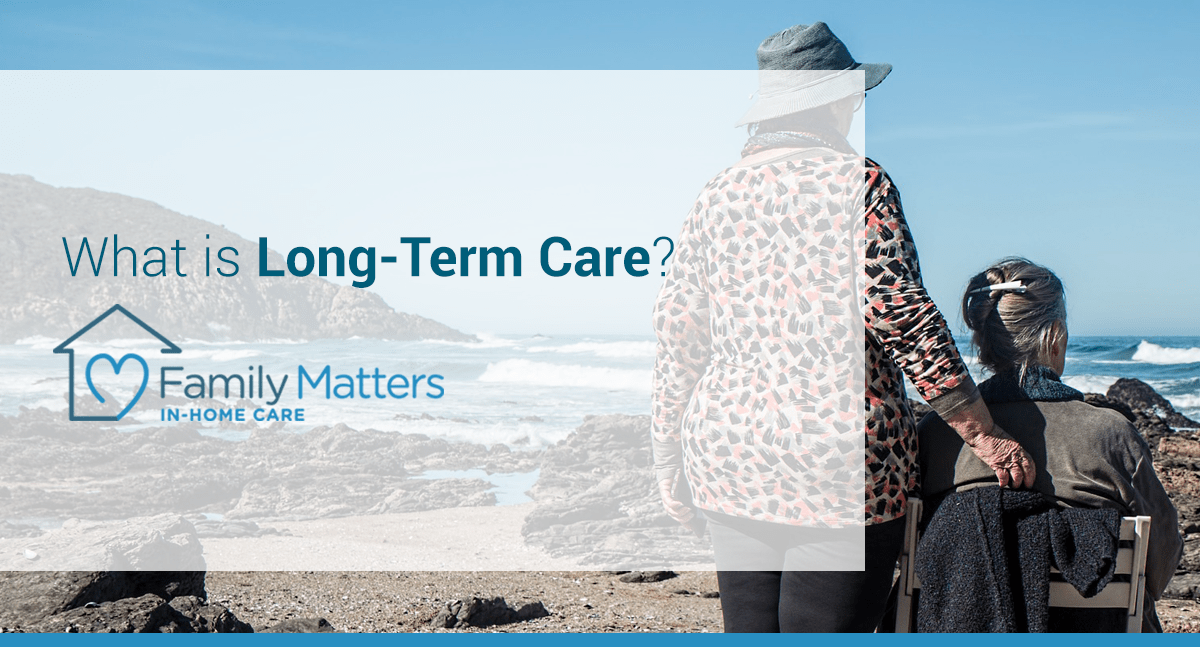
What is Long-Term Care?
Long-term care refers to a variety of services designed to support a person’s health or personal care needs over a short or long period of time. Most long-term care is non-medical, and instead focuses on helping people perform everyday activities that they can no longer perform on their own. The goal of long-term care is to help people live as safely and independently as possible. Services generally include assistance with tasks such as:
- Bathing
- Dressing
- Using the restroom
- Transferring (moving to and from a bed or chair)
- Eating and preparing meals
- Light housekeeping
- Medication reminders
- Transportation
Who Will Need Long-Term Care?
People who require long-term care are typically affected by a chronic health condition or disability. The need for long-term care tends to develop slowly as people grow older and abilities decline, or as an illness or disability worsens. However, in some cases, the need for long-term care can happen suddenly, such as following a surgery or heart attack. There are many factors that increase the chances of needing long-term care such as:
- Age – The likelihood of needing long-term care increase with age.
- Marital Status – Single people are more likely than married people to require long-term care services.
- Gender – Women are more likely to need long-term care than men, probably because they live longer.
- Health and Lifestyle – Lack of physical activity and poor diet increase the chances of needing long-term care.
Home-Based Long-Term Care
Long-term care is most often used to describe care that supports people who want to stay living independently at home as long as possible. Unpaid family members, spouses, and friends provide the majority of at home long-term care. Paid caregivers, nurses, and home health aides can also provide long-term care. These are the two most common types of professional long-term care services:
- Home Care – Home care refers to non-medical services primarily used for individuals that need assistance with activities of daily living such as bathing and meal preparation. In-home caregivers can also serve as companions for seniors who risk experiencing feelings of loneliness and social isolation. Caregivers who have been trained in various aspects of senior care provide home care services. While some caregivers may have a background that includes working in healthcare such as a CNA, it is not a requirement for caregiver certification. Many home care agencies provide ongoing training to ensure caregivers stay up-to-date on senior care protocol. Home care costs are typically paid for privately, however most long-term care insurance plans cover home care expenses.
- Home health care – Home health care refers to medical care provided at home by a licensed professional, such as a nurse or physical therapist. Aimed at helping a patient recover from surgery or serious illness, home health services are usually part of a care plan following a stay at a hospital or rehabilitation facility. It can also be beneficial for individuals who have had medication changes, in order to monitor for potential side effects and ensure the medication is effective. Home health care requires a written order from a doctor, and because it is considered medical care, Medicare and most insurance plans cover the cost.
If you or your family member is considering in-home care as part of a plan to age in place, contact Family Matters In-Home Care today for a free consultation. Our team is dedicated to supporting your family and helping older adults enjoy life in the comfort of their own home for as long as possible.
Some of the services offered by Family Matter In-Home Care include: Alzheimer’s & Dementia Care, Bed & Wheelchair Transfer Assistance, Companionship, Housekeeping & Meal Preparation, Personal Care, Recovery Care, and Transportation.
